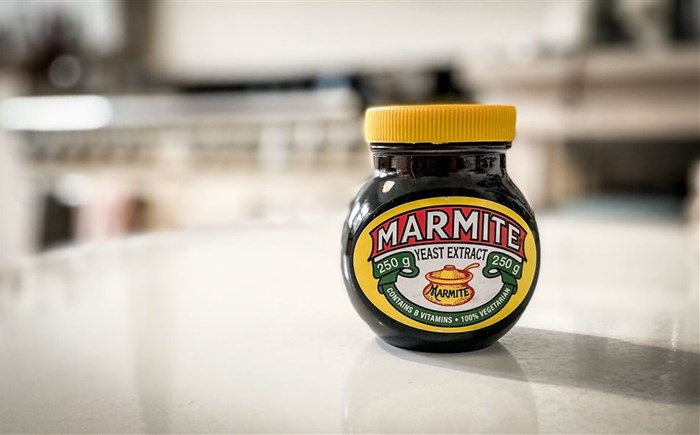Are you data rich, but insight poor?
Why knowing 'why' is sometimes more important than 'what'
For the longest time governments, businesses and brands muddled through the ages, data-poor and insight-poor. And those who did manage to find answers had to spend an absolute fortune on sending fleets of field-workers into public places armed with clip-boards, printed forms and ball-point pens. Then along came the digital age and the thrilling realisation that a world full of bits and bytes would automatically be data-rich. But it was just a moment before everyone started drowning in a bottomless pool of data. Without the means and skills to tame the beast that is today’s data, there’s the risk of remaining solidly insight-poor, and in best-case scenarios, insight-frail.

“In my view, data itself is no longer a valuable commodity,” says Brandon de Kock, BrandMapp’s director of storytelling. BrandMapp is an annual survey reaching over 30,000 South Africans living in households earning R10k+ per month. Now in its 10th year, it’s the most extensive independent annual study conducted into the lifestyles, cares and consumerism of the mid-market-and-up which comprises the country’s tax-paying base. De Kock says, “Being data-rich and insight-strong is a sort of business Nirvana, and all it takes is a commitment to being careful not to misuse data, and put some effort into innovative strategies to use it correctly.”
For South African brands and businesses this is a particular challenge. De Kock explains, “The more homogenous a market segment or a society, the simpler the solutions. But South Africa is one of the most diverse countries in the world with 63 million people, 11 official languages, nine radically diverse provinces, the highest income inequality in the world with a Gini coefficient of around 0.67, and a cornucopia of social and cultural nuances. Leonardo Da Vinci would find it hard to paint a single picture of our whole society! So in simple terms, the chances of a single source of data doing the job is rather unrealistic. To draw insights about South Africa, you need find a variety of data and take a far more Jackson Pollock approach: fill the whole canvas with the broad spectrum of colours and hues required to adequately portray our rainbow nation!”

South African marketers who have evolved from being solely reliant on establishment data like the old AMPS survey results, now have uncountable reams of consumer and transactional data available to them. However, that doesn’t necessarily mean that they know any better about what’s going on in the minds of consumers. De Kock says, “With such an abundance of data, it’s easy to get overwhelmed and go off track. If you cherry pick some data, you might draw unreal conclusions and disappear down rabbit holes. I often use a lovely, simple example from the Covid lockdown era. If all you looked at were sales figures for Marmite, you’d conclude that consumer demand for one of the world’s most popular savoury spreads had dropped off the planet. No-one was buying the stuff and it looked like a weird consumer eccentricity. But in reality, pub, bar and restaurant closures in the UK had a radical effect on beer breweries: 65% of them came to a grinding halt. And Marmite is made from their spent yeast. So plummeting Marmite sales during the Covid-era was not a consumer trend but a supply problem. It’s a slightly silly, but very good example that shows how consumer transactional data, abundant as it is, is not enough to draw meaningful insights.”
A primary feeder of that abundance is the massive increase in use of reward programmes in the SA retail landscape. De Kock says, “Having a loyalty programme of some sort is basically a hygiene factor these days and they are very effective at generating rivers full of transactional data which is invaluable for the guys in charge of stock-control and distribution, but often comes up short in the ‘causal’ department. In the modern tech-driven world, it’s easy to identify what a consumer bought, but the motivations are harder to discover, or what would inspire them to do it again. That’s where people like us who look for stories in the numbers can play a vital role by adding the ‘why’ to the ‘what’!”
South Africa is a sophisticated market with highly discerning consumers, and the best way to understand them is through sharper, stronger insights. And the good news, De Kock believes, is that both businesses and their advertising and marketing agencies are fast catching-up with the times. “There’s an appetite recently for a more modern approach to data and insights”, he argues. “For instance, it wasn’t that long ago that online surveys themselves were considered fragile and the idea of merging, fusing and imputing data sourced from different surveys was quickly shouted down and shamed as a Frankensteinian idea. Stammering the words ‘data fusion’ in a boardroom got a similar reaction as whispering ‘Voldemort’ in the dark hallways of Hogwarts. Now they’re all being hailed as the ‘only way to do it’ and we’re seeing amazing results with fused sets that prove one plus one can equal three. So, there things are certainly moving in the right direction.”
As South African businesses and brands get better at understanding that data-rich could never be an end-goal, and invest in people and partners who can produce a wealth of insight, they will be empowered to provide customers with better personalised services, products and deals. De Kock concludes, “It’s the ultimate win-win. On the way to doing better business, they will more consistently and more truly, improve the lives of South African consumers, and that’s got to be a good thing.”
- South Africa’s consumer class is all in on AI19 Feb 09:56
- How are SA consumers feeling at the end of a lo-ong year?27 Nov 11:56
- Who’s lighting a fire on Heritage day?22 Sep 09:15
- SA consumer class still loves the big screen27 Aug 10:51
- Saving and investing choices of the SA consumer class04 Jul 12:17


































